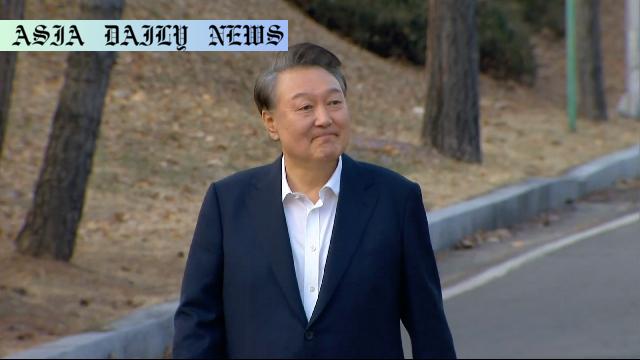Impeachment: South Korea’s Constitutional Court will rule on Yoon’s impeachment and decide on removal or reinstatement.

The Impeachment Case Against President Yoon Suk-Yeol
South Korea faces a political turning point as its Constitutional Court gears up to decide on the impeachment of suspended President Yoon Suk-Yeol. The decision, slated for 11 a.m. Friday, will directly impact whether Yoon is reinstated or formally dismissed from office. This comes following months of political turbulence that began in December with Yoon’s controversial declaration of martial law.
The National Assembly impeached Yoon shortly after, citing severe constitutional violations. The impeachment motion included allegations of his misuse of military power, such as deploying military forces to parliament and attempting to detain lawmakers. Critics argue these actions were undemocratic and contrary to the principles of South Korea’s constitution.
Eleven Hearings to Determine Validity of Impeachment
Since January of this year, the Constitutional Court has conducted 11 hearings to thoroughly analyze whether Yoon’s actions were lawful. Central to the case is the question of Yoon’s motives for enacting martial law. While Yoon asserts that his actions were aimed at addressing opposition-led parliamentary disruptions and investigating alleged election fraud, his detractors view them as an authoritarian overreach that flagrantly violates democratic standards.
The South Korean legal system mandates that the Constitutional Court’s judgment must be based solely on the constitutional and legal merits of the case. This ensures a fair and transparent ruling process, although it underscores the delicate balancing act the court must perform amid heightened political tensions.
The Implications of a Verdict
The implications of the court’s ruling are massive. If Yoon is removed from office, South Korea will face a power vacuum, triggering the necessity for new presidential elections within 60 days. Such an event would undoubtedly deepen political polarization in the country, particularly between Yoon’s supporters and detractors. On the other hand, reinstating the president may provoke widespread public outcry and allegations of institutional bias.
Historically, impeachments of South Korean presidents have been rare but momentous events, often revealing tensions within the country’s fragile democratic institutions. The last such impeachment, of President Park Geun-Hye in 2017, led to nationwide protests and significant political reform. The outcome of Yoon’s case could be equally transformative.
Broader Context: A Test of South Korea’s Democracy
Regardless of the ruling, the case underscores the challenges South Korea faces in maintaining democratic stability in a time of political fractures. Yoon’s presidency and the surrounding controversies emphasize the fragile balance required to govern a deeply polarized society. International observers are keenly watching how South Korea navigates its institutional response to such a significant constitutional crisis.
Commentary
Unfolding of a Constitutional Crisis
The impeachment case against South Korea’s President Yoon Suk-Yeol encapsulates a pivotal moment in contemporary Korean politics. It challenges not just the legitimacy of Yoon’s presidency but also the robustness of South Korea’s democratic institutions. As the Constitutional Court prepares to rule, it must weigh the constitutional merits of Yoon’s actions while navigating the highly polarized and tense political environment.
The Long Shadow of Martial Law
At the heart of this controversy lies Yoon’s declaration of martial law – an act fraught with historical and political connotations in South Korea. Martial law has often been associated with authoritarian regimes in the country’s past, and this case reignites those memories for many citizens. Whether or not Yoon’s declaration was constitutionally warranted, its optics and timing raise significant questions about the balance between executive action and democratic principles.
The Broader Implications for Governance
Beyond Yoon himself, the court’s decision has far-reaching implications for South Korea’s political landscape. Impeachment and the potential for a rapid transition of power would inject uncertainty into an already volatile political climate. On the other hand, reinstating Yoon could undermine public trust in South Korea’s governing institutions. Either way, the country faces a formidable test of its democratic resilience.
As Friday approaches, all eyes remain fixed on the Constitutional Court. Its ruling will not just decide the fate of one man but may set a precedent that defines South Korea’s evolving democratic governance.


